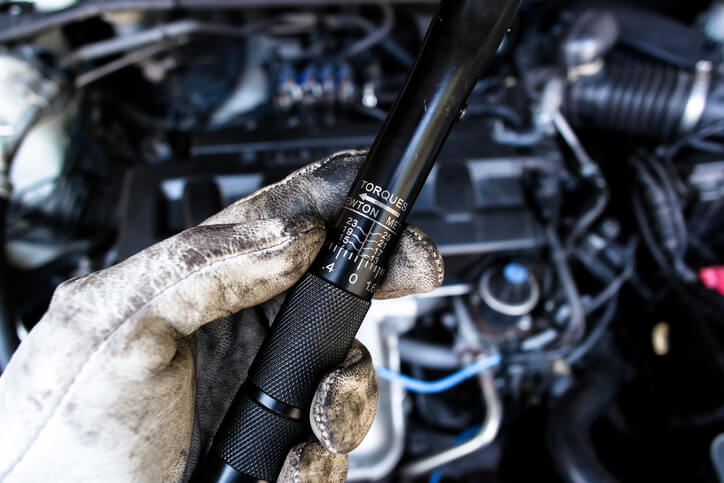Understanding Torque: Why It Matters in Auto Repair
Torque is one of the most important and often misunderstood concepts in automotive repair. It affects everything from engine performance to the simple task of tightening bolts. For students in auto mechanic training, a deep understanding of torque is essential for doing safe, precise, and professional work in the shop.
At ATC Cambridge, torque is more than just a number on a wrench, it’s a core part of every successful repair and system calibration. Whether you’re dealing with lug nuts, cylinder heads, or drivetrain components, mastering torque is what sets trained technicians apart from amateurs.
What Is Torque, Exactly?
Torque is a measure of rotational force. In the context of auto repair, it describes the force used to turn or twist an object, such as a bolt or crankshaft. It’s measured in Newton meters (Nm) or foot pounds (ft-lb), and proper application is crucial to maintaining mechanical integrity.
Auto mechanic school students learn that torque isn’t just about strength but balance. Too little torque can lead to components loosening over time, while too much can strip threads or crack parts. Proper torque ensures reliability, safety, and consistent performance.
Torque in Engine Performance
When it comes to engines, torque plays a major role in how a vehicle accelerates and handles loads. High torque at low RPMs is ideal for towing and heavy-duty vehicles, while high-end torque benefits sports cars that thrive on acceleration.
During automotive training, students explore how engines generate torque based on variables like fuel type, turbocharging, valve timing, and cylinder configuration. They also examine the relationship between torque and horsepower, two commonly confused terms.
Understanding this relationship allows technicians to diagnose engine performance issues and speak confidently with customers about vehicle capabilities.

Torque in Everyday Repairs
Proper torque specifications are vital in more than just the powertrain. Throughout the vehicle, torque values must be followed carefully to ensure function and safety:
- Torque specifications must be followed for brake calliper bolts
- Suspension components rely on precise torque for safety and alignment
- Cylinder head bolts must be torqued in sequence to avoid engine damage
- Lug nuts require accurate torque to prevent warping brake rotors
Students in auto mechanic training develop these skills through guided, hands-on practice. They learn how to use click-type, beam-type, and digital torque wrenches, how to interpret manufacturer specs, and adjust for tool calibration and fastener condition. This hands-on repetition builds the confidence to handle torque-critical repairs independently.

Diagnostic and Calibration Applications
In today’s vehicles, torque is also part of electronic systems and diagnostics. Torque sensors are used in steering systems, drivetrains, and automatic transmissions, while torque converters play a key role in delivering smooth power in automatic vehicles.
In advanced automotive training, students learn to:
- Use diagnostic tools to read torque-related sensor data
- Identify torque converter malfunctions in automatic transmissions
- Adjust torque values during ECU tuning and calibration procedures
These are the kinds of high-level skills that make graduates more employable in today’s competitive repair industry.
Build a Career With Auto Mechanic Training at ATC Cambridge
At our auto mechanic school, torque is not treated as an afterthought, it’s a fundamental part of the curriculum. Whether you’re repairing a compact car or servicing a heavy-duty pickup, torque plays a role in nearly every system.
From the classroom to the service bay, auto mechanic training at ATC gives students the tools and experience to handle torque-related tasks with accuracy and confidence. You’ll learn to follow OEM specifications, apply torque properly, and understand the “why” behind every setting.
Are you looking for comprehensive automotive training?
Contact ATC Cambridge for more information.


